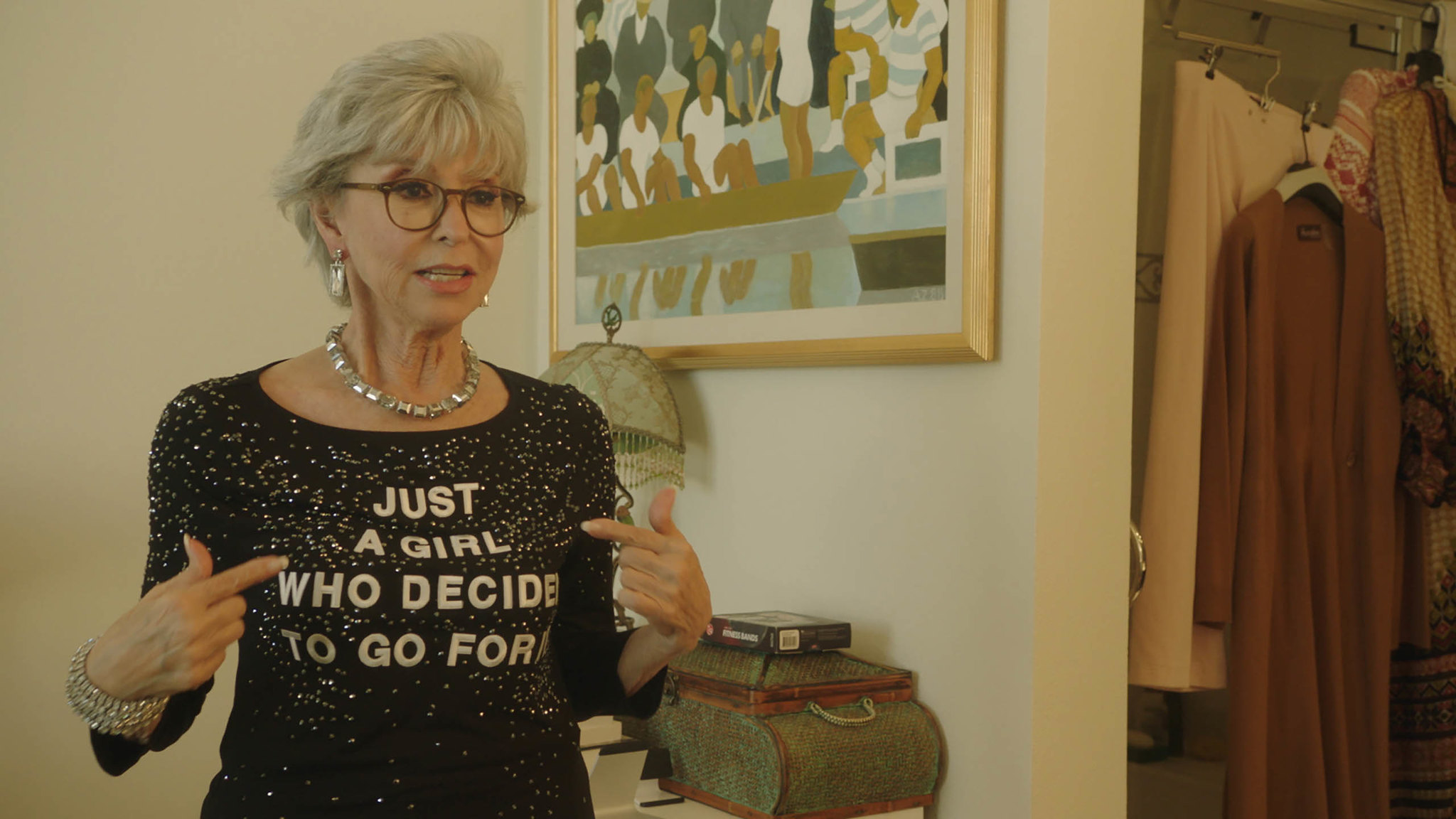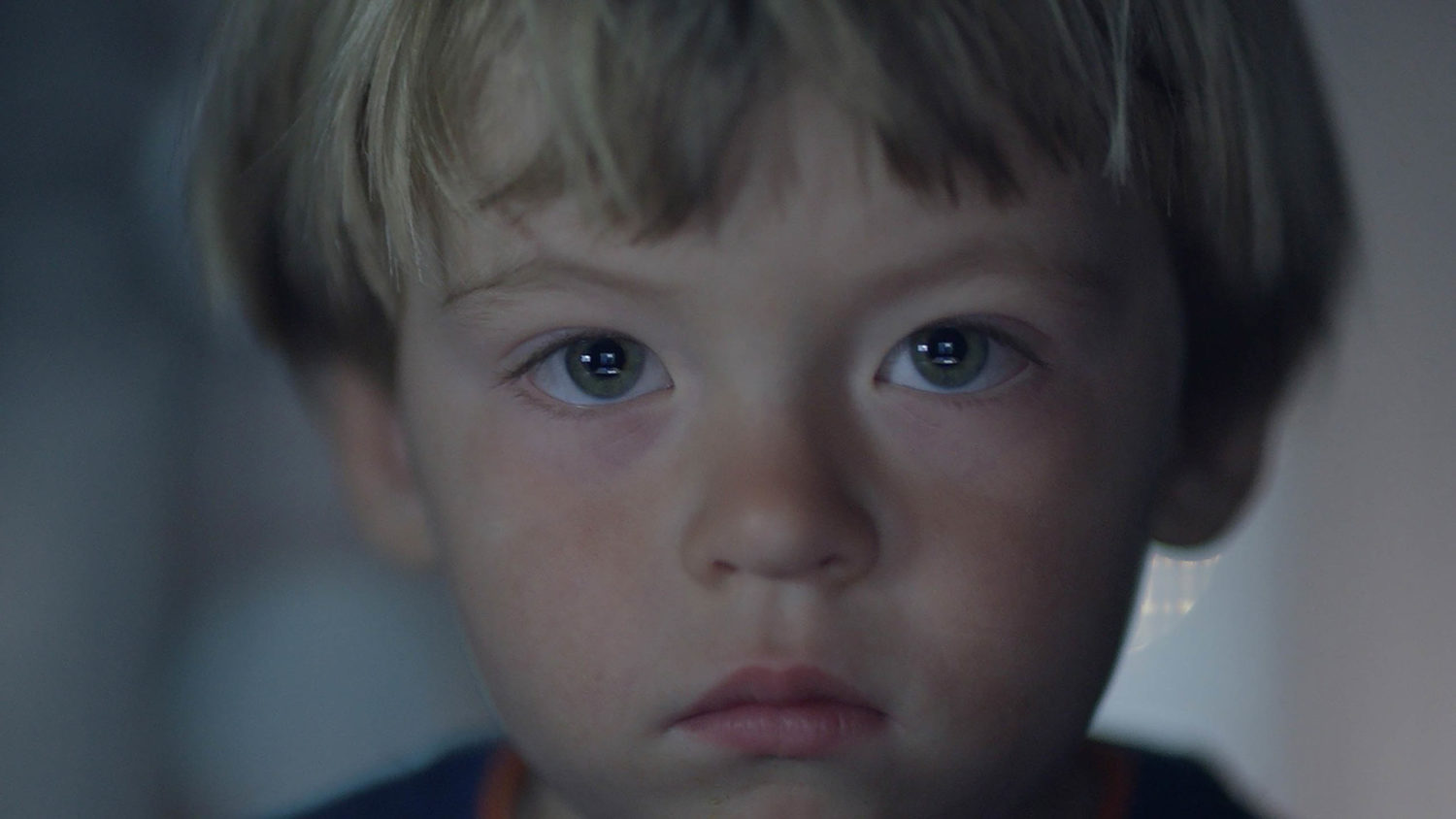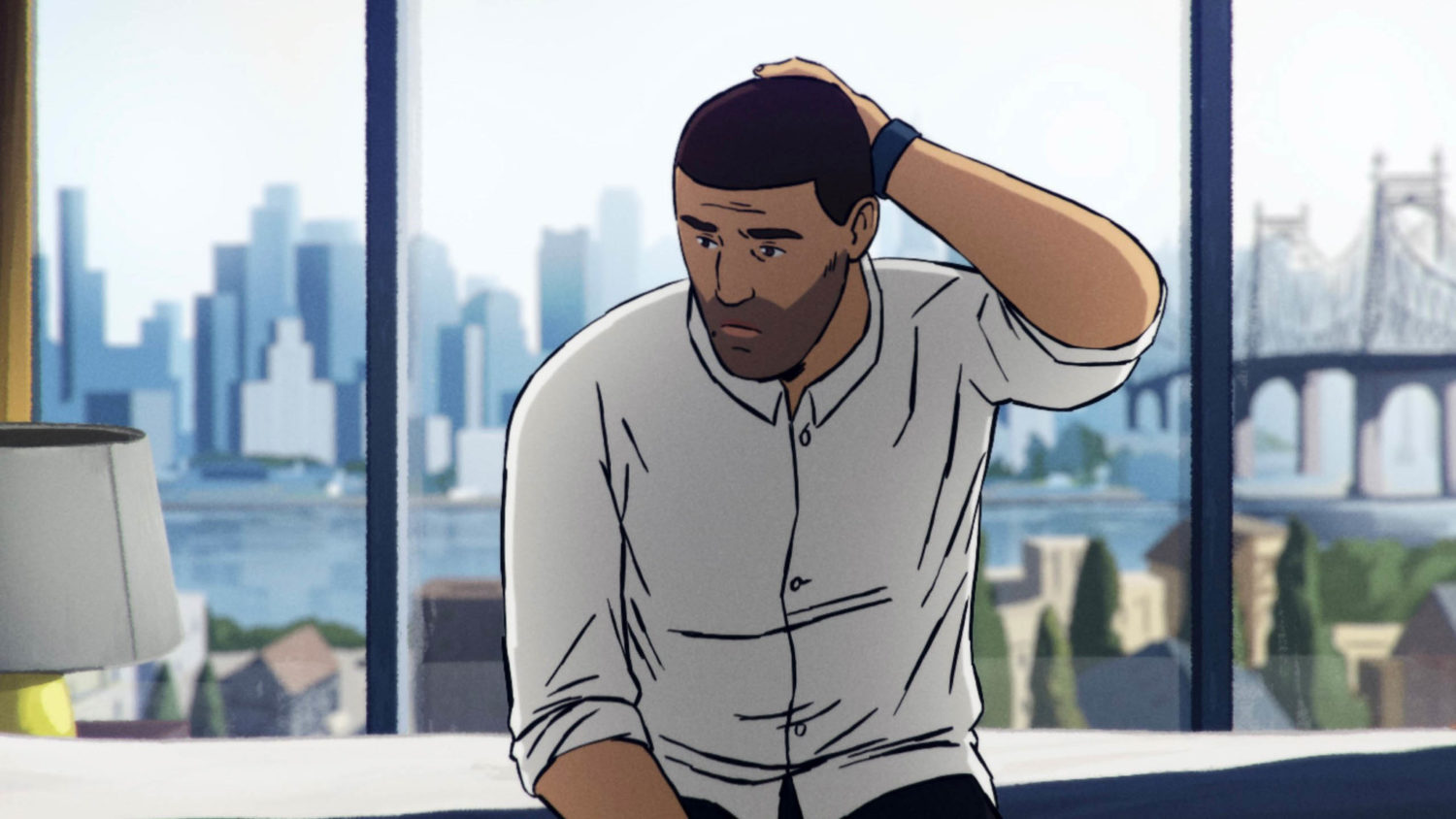The latest doc dispatch from the 2021 Sundance Film Festival highlights the presence of women behind the camera. This quartet of films features an EGOT icon, a burning dilemma, creatures of the sea, and an intoxicating slice of slow cinema.
Rita Moreno: Just a Girl Who Decided to Go For It
(USA, 90min)
Dir. Mariem Pérez Riera
Programme: U.S. Documentary Competition
For seven decades, Rita Moreno has been one of the most charismatic and engaging performers on the world stage. Just a Girl Who Decided to Go For It invites audiences to spend time with this legendary figure. Puerto Rican filmmaker Mariem Pérez Riera provides a highly sympathetic celebration of the artist’s career, tracing events from her earliest roles through to her performances that continue to the present day. Through intimate interviews and well-presented archive material, audiences witness a remarkable woman as she reminisces about her extraordinary life.
Moreno was born in P.R. and immigrated to mainland U.S.A as a child with her mother, leaving behind her father and brother. With a youth spent modeling and dancing, her film roles began with portrayals that she describes as “dusky” women – Mexicans, South Asians, Native Americans – pancaked in makeup that darkened her complexion and relegated her to supporting roles.
She played in a number of major productions, leading to her Oscar-winning turn as Anita in West Side Story. Following this success, the calls did not come, and Moreno speaks convincingly about the challenges she faced while hemmed in by prejudice. Tracing the line from the funky children’s show Electric Company to the brutal, brilliant prison drama Oz would be fascinating for any career, but it’s only part of the many aspects that make Moreno the icon that she is.
Colleagues such as Eva Longoria, Whoopi Goldberg, and Gloria Estefan provide their commentary and context, but for the most part this is Rita’s time to shine. Despite Moreno’s intimate cooperation with the filmmakers, this is far than a simple hagiographical take. There’s some real depth and examination of her own faults and shortcomings. Discussion about her relationship with her late husband, as well as celebrity liaisons with the likes of Marlon Brando, is particularly revealing.
Above all, it’s clear that Moreno is a survivor, one who has managed with brashness and brilliance to bring the world along with her on her journey. She brings us closer to her art and her story, and thanks to her infectious laugh and caustic sense of humour, as well as her honesty about what she’s witnessed, we are treated to a welcome portrait of an artist who continues to radiate us with her talent. – Jason Gorber
Bring Your Own Brigade
(USA, 127min)
Dir. Lucy Walker
Programme: Premieres
There’s so much to admire about Lucy Walker’s Bring Your Own Brigade that it feels almost churlish to pick it apart. First, I’m admittedly a sucker for Sundance films about the Paradise fires in California, with last year’s Rebuilding Paradise by Ron Howard providing a highly cinematic look at the inferno and its aftermath. Walker’s film goes more deeply into the community long after the embers have cooled, adding a contrast between what took place up north with the similar destruction that took place in Malibu.
The film works best when it dives more deeply into both the causes and the results of these events, as well as the historical ties to not only indigenous practices but to general misconceptions regarding the causes, from knee-jerk responses about global warming to cynical derision of the actions of the state. Through probing interviews and some excruciating moments at community meetings, Walker illustrates not only the nuance behind the many arguments, but also how complicated and seemingly intractable the positions seem to be.
The telling is hampered, however, by Walker’s inclusion of her own story so often in the narrative (a conceit she is hardly the first to overuse). It provides evidence of her own journey of discovery, demonstrating that her left-leaning ways are as dogmatic in some ways as the more conservative people with whom she speaks. However, the conceit also feels indulgent, and her diary-like confessions occupy too much time, while her fascination with certain key participants lingers just a bit too long.
That said, along the journey yields some remarkable journalism, from her articulation about how reforestation causes, paradoxically, an increase in the deadliness of the fires, to a more full understanding that the very things that should appear easy to accomplish are those same factors that lead individuals to live in an area ripe for such destruction. When the film lacks dogma or rote perspective, it becomes more effective and challenges audiences and participants alike to consider their own predilections and prejudices.
Unfortunately, the film is often burdened by overwrought asides and droning observations. The resultant work is at once vital and engaging while too often veering into the maudlin and repetitive. The film is so close to been brilliant with a bit more distance from the creator, yet that shouldn’t dissuade anyone from giving this film a chance. – JG
Faya Dayi
(Ethiopia/U.S.A./Qatar, 120 min.)
Dir. Jessica Beshir
Programme: World Cinema Documentary Competiton
Fans of slow cinema will get a high from Faya Dayi. This hypnotic and measured feature debut from Jessica Behir considers the role of a plant named khat that provides a stimulating effect when chewed. Through handsomely shot black-and-white vignettes, Beshir observes the workers who harvest the plant and the everyday users who relish its effects. The fleeting rhythm of Faya Dayi conveys the intoxicating effect of khat, giving viewers perspective on both its pleasures and its pains as it captures the experiences of young workers who want more to life than a temporary high.
As with any drug of choice, including slow cinema, Faya Dayi is an acquired taste. Cinephiles willing to bask in its disciplined lilt will find a new and rewarding experience. Those who don’t quite have the patience for the feverish odyssey will nevertheless be struck by the film’s stark images. A tighter 80-to-90 minute cut of Faya Dayi might yield richer rewards, but the striking cinematic vision undoubtedly marks a promising new voice, as does Behir’s ingenuity in crafting a visual language worthy of some buzz. – Pat Mullen
Playing With Sharks
(Australia, 95min)
Dir. Sally Aitken
Programme: World Cinema Documentary Competition
Writer/director Sally Aitken provides a sympathetic portrayal about Valerie Taylor, a legendary character who has helped change the world’s perception about one of its greatest creatures: sharks. Taylor began as a competitive sportfisher, freediving with mask, fins and a speargun to catch prey along the reefs of her native land. After meeting her husband-to-be Ron, himself a fellow champion hunter, the two traded in their aquatic weaponry for camera housings, showing the world the magical views under the seas along the Australian coast.
The film echoes structurally the likes of Bret Morgen’s award-winning Jane, with Aitken employing priceless of historic underwater footage of Taylor and her aquatic companions captured by her husband. Anchored with a contemporary interview of the subject, as well as other iconic oceanographers like Jean-Michel Cousteau, we trace not only the history of underwater exploration but also the destruction to the habitats that these witnesses have experienced as the ocean is shaped by the significant effect of climate change.
Above all, the Taylors were made world famous because of their interaction with one of the most feared creatures of the sea. From early shots of grey nurse and white-tip reefs, through to encounters with the fearsome Great White and schools of oceanic-white tips, these are some of the most indelible and influential images of sharks ever captured. Valerie seemed preternaturally comfortable with creatures that were often the subject of maritime nightmares, and her spirit and calm has resulted in generations of fellow divers sharing space with these remarkable animals.
The most famous imagery the Taylors ever captured was tied to a global blockbuster that helped solidify these creatures as rampant killing machines. Aitken tells the story of the Jaws shoot using intriguing behind-the-scenes imagery buttressed by Valerie’s own remembrances, resulting in a highly detailed look at how the phenomenon of that film paradoxically both helped and hurt by bringing immense attention to the global shark population.
While the narrative is relatively straightforward, and any drama or disagreements conveniently overlooked, there remains a rich and welcome documentation of this remarkable woman and her immense effect on the global community. From her ecological advocacy through to the empathy for undersea life that she radiates, Valerie Taylor’s legacy is one that’s complicated but overwhelmingly positive. Thanks to Aitken’s film, generations will get to gaze in wonder at what in her lifetime has diminished, and will be drawn to follow her into the depths to explore and gaze in wonder at the majesty of what lies beneath. – JG
Sundance 2021 runs from Thursday, Jan 28 to Wednesday, February 3.












